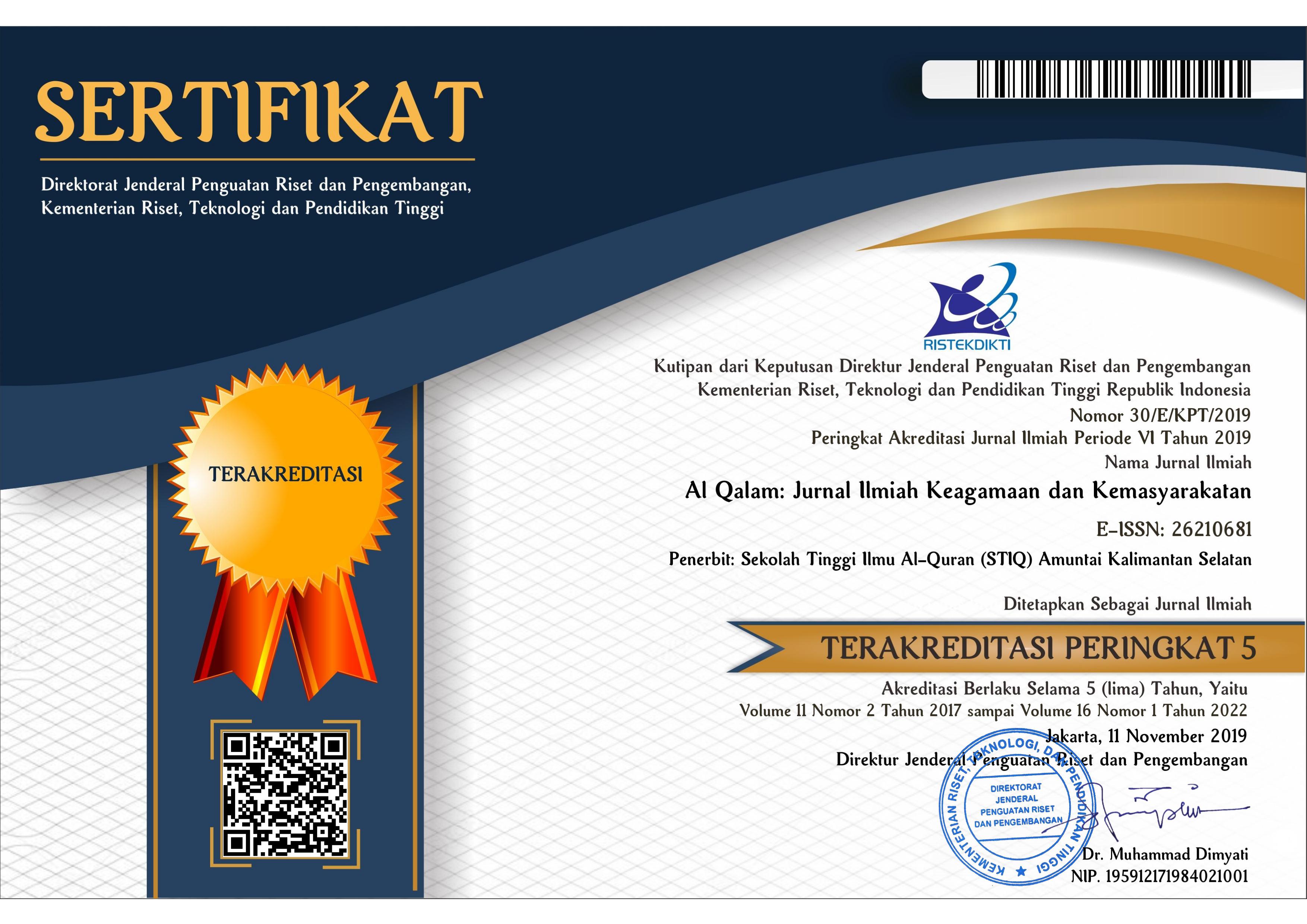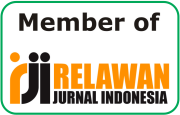The Role of Participatory Communication in Motivational Interviewing in Handling Drug Abusers (Case Study of Clients in the Mild and Moderate Categories at the BNN Primary Clinic in South Kalimantan Province)
Abstract
Drug abuse is a complex problem that impacts health, social, and economic aspects. Rehabilitation efforts are crucial in addressing it, particularly through an effective and humanistic communication approach. This study aims to explore the role of participatory communication in the Motivational Interviewing (MI) method in the rehabilitation process for mild and moderate drug abusers at the Pratama Clinic of the National Narcotics Agency (BNN) in South Kalimantan Province. Using a qualitative approach with a case study design, data were collected through in-depth interviews, participant observation, and documentation with six clients and one counselor. The results indicate that participatory communication plays a crucial role in building an equal, empathetic, and inclusive counseling relationship. Clients feel more valued, heard, and encouraged to be active in the recovery process. However, challenges remain, such as differences in socio-cultural backgrounds and client passivity. In conclusion, participatory communication supports the effectiveness of MI in increasing client motivation and engagement, and is an important strategy in creating a more humane and sustainable rehabilitation process.
Keywords
Full Text:
PDFReferences
Alfi, Imam, and Dedi Riyadin Saputro. “Hambatan Komunikasi Pendamping Sosial.” Al-Balagh : Jurnal Dakwah Dan Komunikasi 3, no. 2 (2018): 193–210. https://doi.org/10.22515/balagh.v3i2.1397.
Bandura, Albert. Self-Efficacy: The Exercise of Control. Self-Efficacy: The Exercise of Control. New York, NY, US: W H Freeman/Times Books/ Henry Holt & Co, 1997.
Cai, Wenqiang, and Yijie Wang. “Family Support and Hope among People with Substance Use Disorder in China: A Moderated Mediation Model.” International Journal of Environmental Research and Public Health 19, no. 16 (January 2022): 9786. https://doi.org/10.3390/ijerph19169786.
Freire, Paulo. Pedagogy of the Oppressed: 50th Anniversary Edition. Bloomsbury Publishing USA, 2018.
Hasan, Hanif, M. Ansyar Bora, Dini Afriani, Listya Endang Artiani, Ratna Puspitasari, Anggi Susilawati, Putri Maha Dewi, et al. Metode Penelitian Kualitatif. Yayasan Tri Edukasi Ilmiah, 2025.
Kalantarkousheh, Seyed Mohammad, Maryam Rasouli, Robabeh Abolfathi, and Neda Nouri. “Effectiveness of Communication Skills in Decreasing Addiction Tendencies among Male Students from Cities within Tehran Province.” European Journal of Experimental Biology 4, no. 1 (n.d.): 0–0.
King, Imogene M. Toward a Theory for Nursing: General Concepts of Human Behavior. Wiley, 1971.
Miller, William R. “Motivational Interviewing in Treating Addictions.” In Motivational Interviewing in the Treatment of Psychological Problems, 3rd Ed, 167–87. New York, NY, US: The Guilford Press, 2025.
Miller, William R., and Stephen Rollnick. Motivational Interviewing: Preparing People for Change. 2nd ed. New York: Guilford Press, 2002.
———. Motivational Interviewing: Preparing People to Change Addictive Behavior. London: The Guilford Press, 1996.
Moyers, Theresa B., Tim Martin, Paulette J. Christopher, Jon M. Houck, J. Scott Tonigan, and Paul C. Amrhein. “Client Language as a Mediator of Motivational Interviewing Efficacy: Where Is the Evidence?” Alcoholism, Clinical and Experimental Research 31, no. 10 Suppl (October 2007): 40s–47s. https://doi.org/10.1111/j.1530-0277.2007.00492.x.
Prochaska, James O., John Norcross, and Carlo DiClemente. Changing for Good: A Revolutionary Six-Stage Program for Overcoming Bad Habits and Moving Your Life Positively Forward. New York: Quill, 2007.
Ramadhan, Dhiya Nabilah, Budi Muhammad Taftazani, and Nurliana Cipta Apsari. “Family Support Group Sebagai Bentuk Dukungan Keluarga Bagi Penyalahguna Narkoba.” Share : Social Work Journal 14, no. 1 (July 27, 2024): 26–37. https://doi.org/10.24198/share.v14i1.52462.
Rogers, Carl Ransom. Freedom to Learn for the 80’s. Columbus, Ohio: Charles E Merrill Publishing Company, 1983.
Singhal, Arvind, and Kanta Devi. “Visual Voices in Participatory Communication.” Communicator XXXVIII, no. 2 (2003): 1–15.
Suitrisno, Gaerry Amano, Bahrul Amiq, and Yustino Yustino. “Implementasi Fasilitas Rehabilitasi Medis Bagi Pengguna Narkotika Di BNN Kota Mojokerto.” Perspektif Administrasi Publik Dan Hukum 2, no. 1 (February 11, 2025): 215–28. https://doi.org/10.62383/perspektif.v2i1.176.
DOI: http://dx.doi.org/10.35931/aq.v19i6.5689
Refbacks
- There are currently no refbacks.
Copyright (c) 2025 Muzahid Akbar Hayat, Decky C. Kananto Lihu, Rakhmadiansyah Rakhmadiansyah

This work is licensed under a Creative Commons Attribution 4.0 International License.
Al Qalam: Jurnal Ilmiah Keagamaan dan Kemasyarakatan
index by:
Publish by:
Sekolah Tinggi Ilmu Al-Qur'an Amuntai
Contact us:
Address: Jl. Rakha Pakapuran, Amuntai Utara
Kabupaten : Hulu Sungai Utara
Kode Pos : 71471
Provinsi : Kalimantan Selatan
Telephone : 085251613000
Email: hafizhihusinsungkar@gmail.com

This work is licensed under a Creative Commons Attribution 4.0 International License


